No one likes dealing with mosquitoes in the yard, especially during summer. These little bugs can ruin your time outside and leave behind itchy bites.
While store-bought sprays are easy to find, many contain strong chemicals that aren’t safe for kids, pets, or your garden. That’s why more people are turning to homemade mosquito sprays—they’re simple, safe, and affordable.
With just a few everyday ingredients like garlic, vinegar, or essential oils, you can make your own natural mosquito spray right at home. It’s a great way to protect your yard without harming the environment or your family.
In this guide, you’ll learn how mosquito sprays work, which ingredients are best, and how to make and use your own. Keep your yard bug-free the safe and natural way—with homemade mosquito spray!
Why Make Your Own Mosquito Spray?
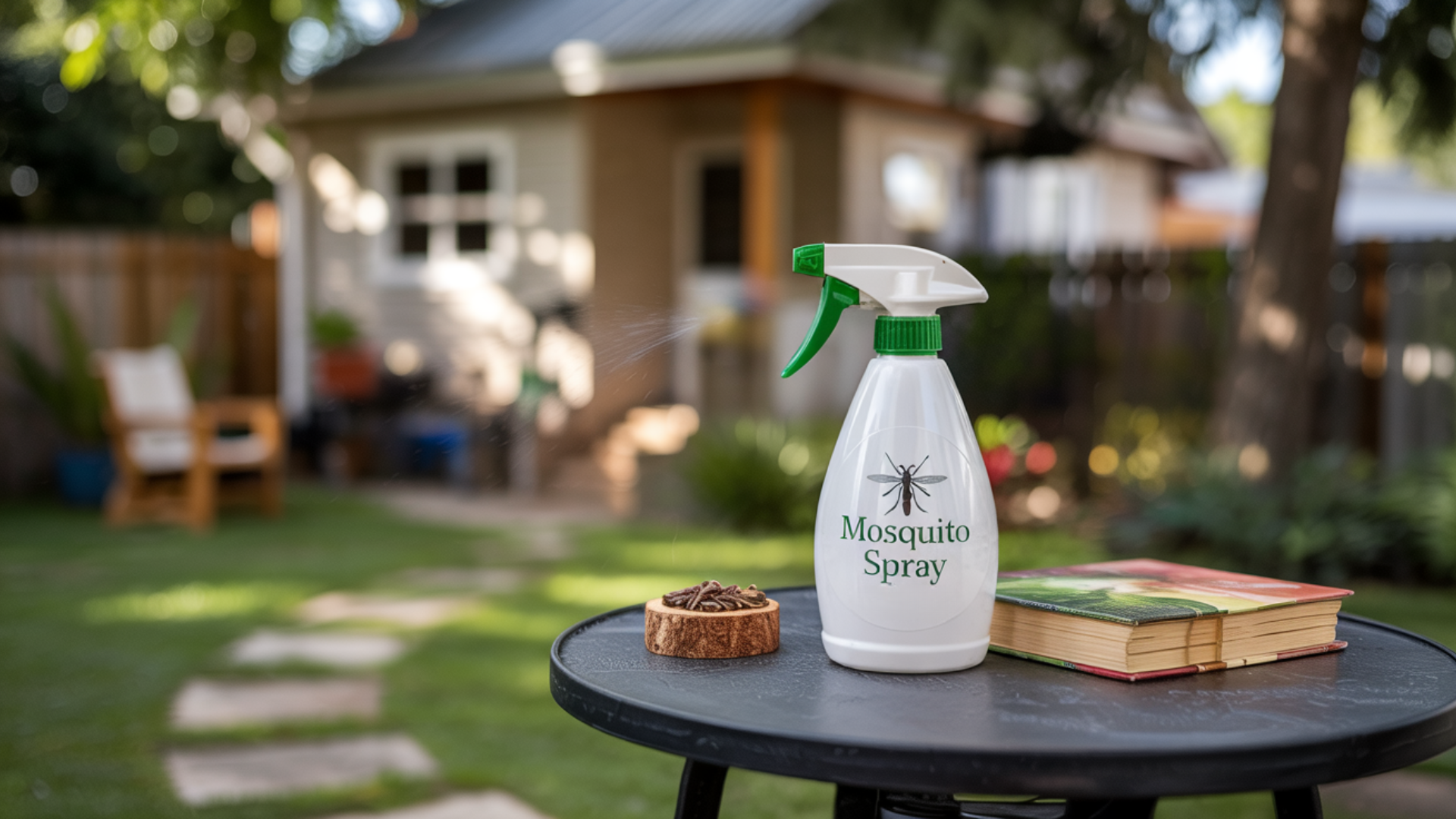
Making your own mosquito spray is a smart and simple way to protect your yard without using harsh chemicals. Many store-bought sprays contain strong ingredients that can be harmful to kids, pets, and even plants.
Homemade sprays, on the other hand, utilize natural ingredients such as garlic, vinegar, and essential oils. I find them to be much safer and still effective in keeping mosquitoes away.
Another great reason to go DIY is the cost. Most homemade sprays utilize items you likely already have in your kitchen or bathroom, such as lemon juice or peppermint oil. That means you can make a large batch without spending a lot of money.
Lastly, homemade mosquito sprays are more environmentally friendly. They don’t harm bees or butterflies, and they won’t pollute the soil or water. If you want a bug-free yard that’s safe for everyone, making your own spray is a great choice.
How Mosquito Sprays Work
Homemade mosquito sprays don’t kill mosquitoes—they keep them away. These natural sprays work by using strong smells that mosquitoes hate. When sprayed around your yard, they make the space less inviting for bugs.
- Overwhelms Their Senses: Mosquitoes use their sense of smell to locate people and pets. Natural sprays confuse them and make it harder to locate you.
- Covers Up Human Scents: Ingredients like citronella, lavender, or vinegar help mask the scents that attract mosquitoes, such as sweat or body heat.
- Creates a Protective Barrier: When sprayed around outdoor spaces, these mixtures form a scent shield that repels mosquitoes.
Homemade sprays work best when applied often, especially in areas where mosquitoes like to hide. With the right mix, you can enjoy your yard without constant buzzing and bites.
Easy Homemade Mosquito Yard Spray Recipes
Making your own mosquito spray is easier than you might think. With just a few simple ingredients, you can mix up a natural spray that keeps mosquitoes away from your yard.
1. Garlic and Lemon Spray
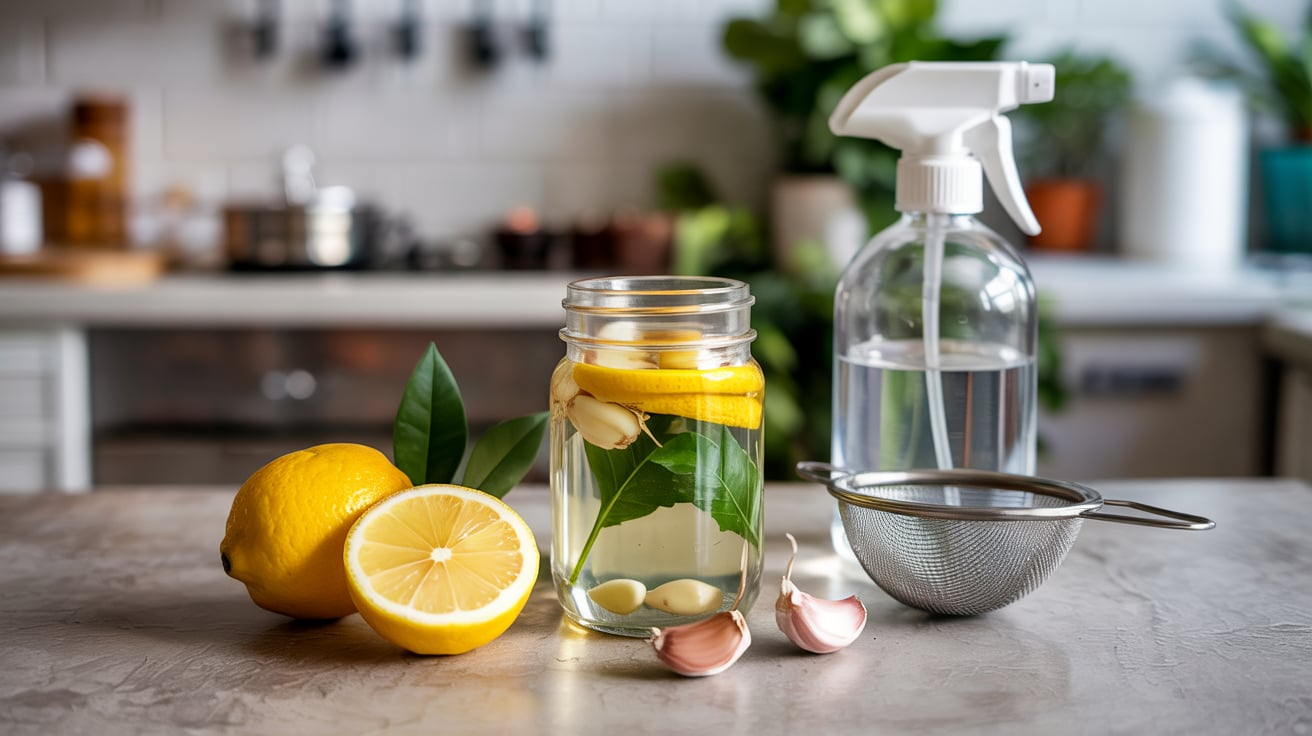
Ingredients
- 2 bulbs of garlic (crushed)
- 1 lemon (sliced)
- 4 cups water
Instructions
- Add the garlic and lemon slices.
- Simmer for 10–15 minutes.
- Let it cool, then strain the liquid into a spray bottle.
Use: Spray around the yard, especially near bushes, fences, and patio areas. Reapply every few days.
2. Vinegar and Essential Oil Spray
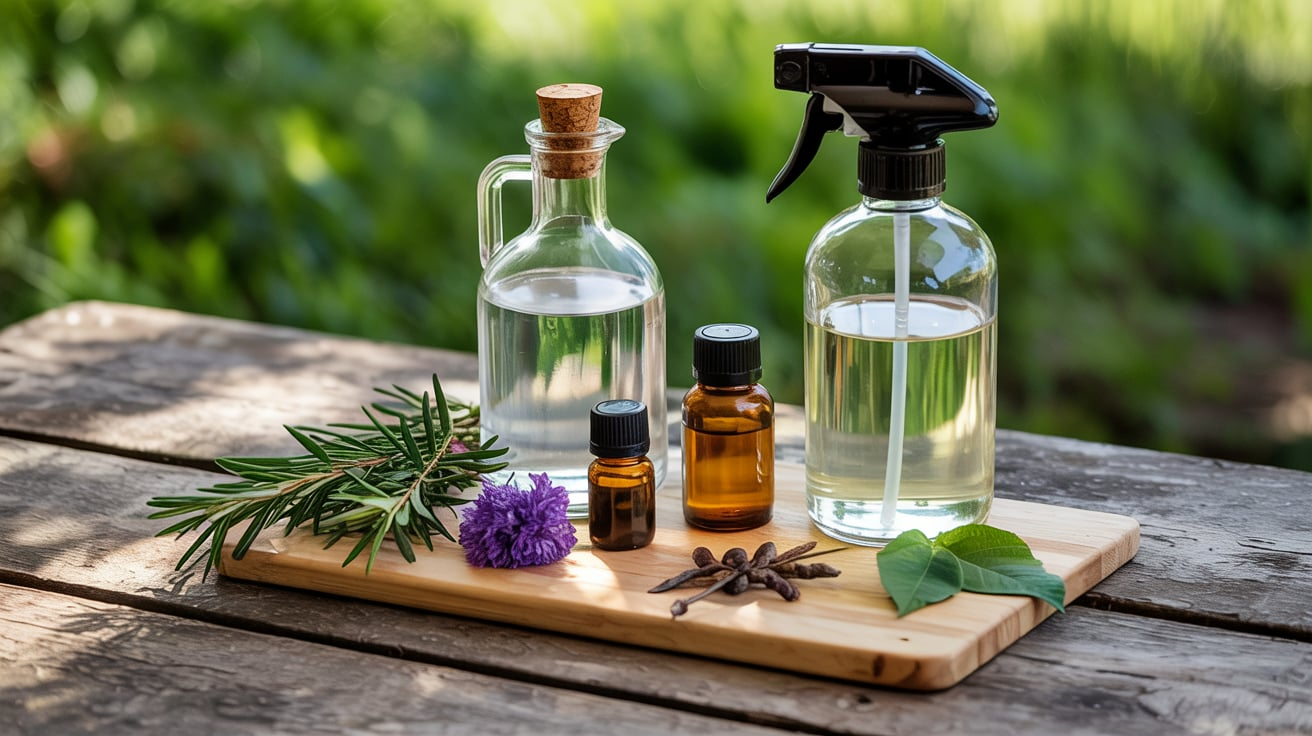
Ingredients
- 1 cup apple cider vinegar
- 1 cup water
- 20 drops of citronella or peppermint oil
Instructions
- Pour vinegar and water into a spray bottle.
- Add all essential oils.
- Shake well before each use.
Use: Spray around sitting areas, doorways, and garden edges.
3. Herbal Alcohol Spray
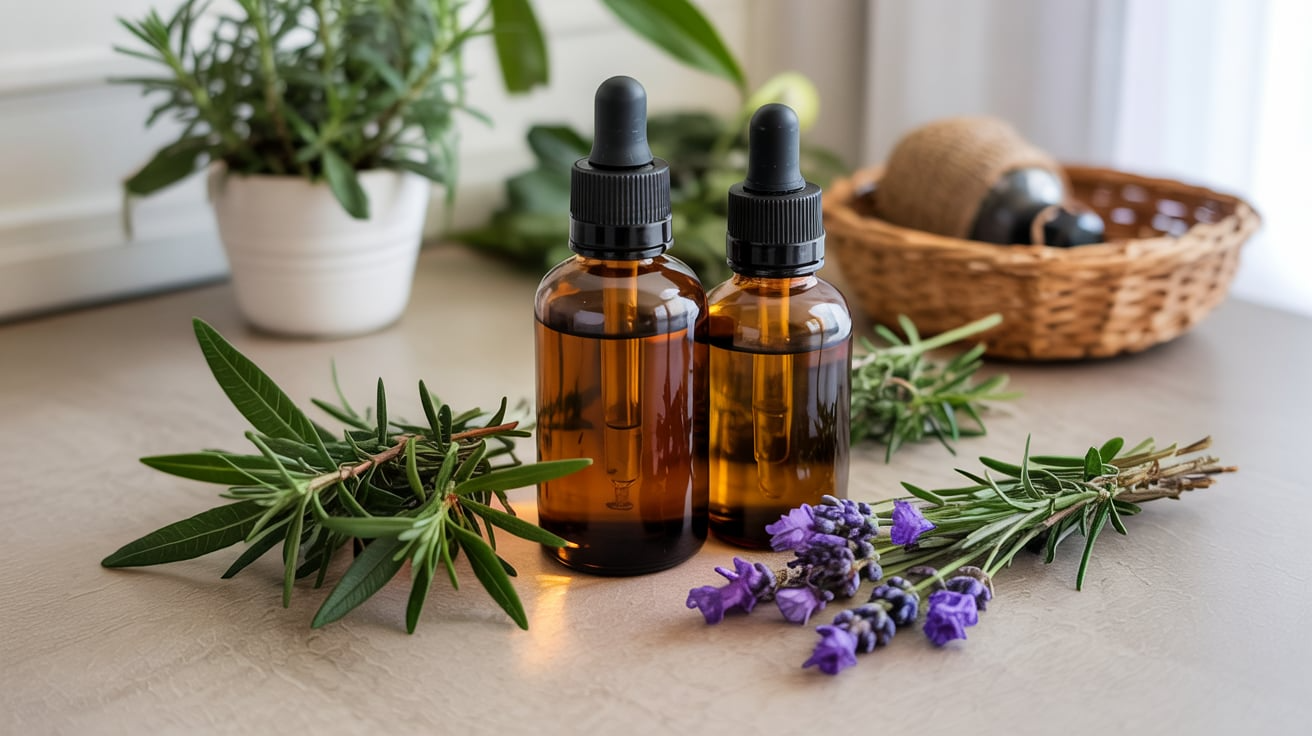
Ingredients
- 1 cup rubbing alcohol or witch hazel
- A handful of crushed mint or rosemary leaves
- 10 drops of lavender oil
Instructions
- Mix in a bottle and let sit for 24 hours.
- Shake before spraying on bushes, patios, or porch areas.
Use: Apply in the early evening, before mosquitoes emerge.
These recipes are safe, affordable, and work great when used regularly in your outdoor space.
How to Apply Homemade Mosquito Spray Outdoors
Applying your homemade mosquito spray correctly helps it work more effectively and last longer. You don’t need fancy tools—just a few household items and a bit of good timing.
Best Tools to Use
- Spray Bottle: Great for small areas like porches or patios.
- Pump Garden Sprayer: Best for larger lawns and flower beds.
- Backpack Sprayer: Good for big yards or wooded areas.
Choose a sprayer based on your yard size. Always rinse and clean it before use to avoid clogs or mixing with other chemicals.
When and Where to Spray
- I try to spray early morning or late afternoon, when mosquitoes are most active.
- Focus on shady areas, bushes, under decks, near water, and around doorways and sitting spaces.
- Avoid spraying during heavy wind or rain, as it may wash away the spray too quickly.
How Often to Reapply
- Most homemade sprays last 2–3 days, depending on the ingredients and weather.
- Reapply after rain, heavy watering, or when you notice more bugs returning.
- Keep a schedule during mosquito season to stay protected.
With regular application and focus on high-risk spots, your DIY spray can help reduce mosquitoes and make your yard more enjoyable.
Best Ingredients for Homemade Mosquito Spray
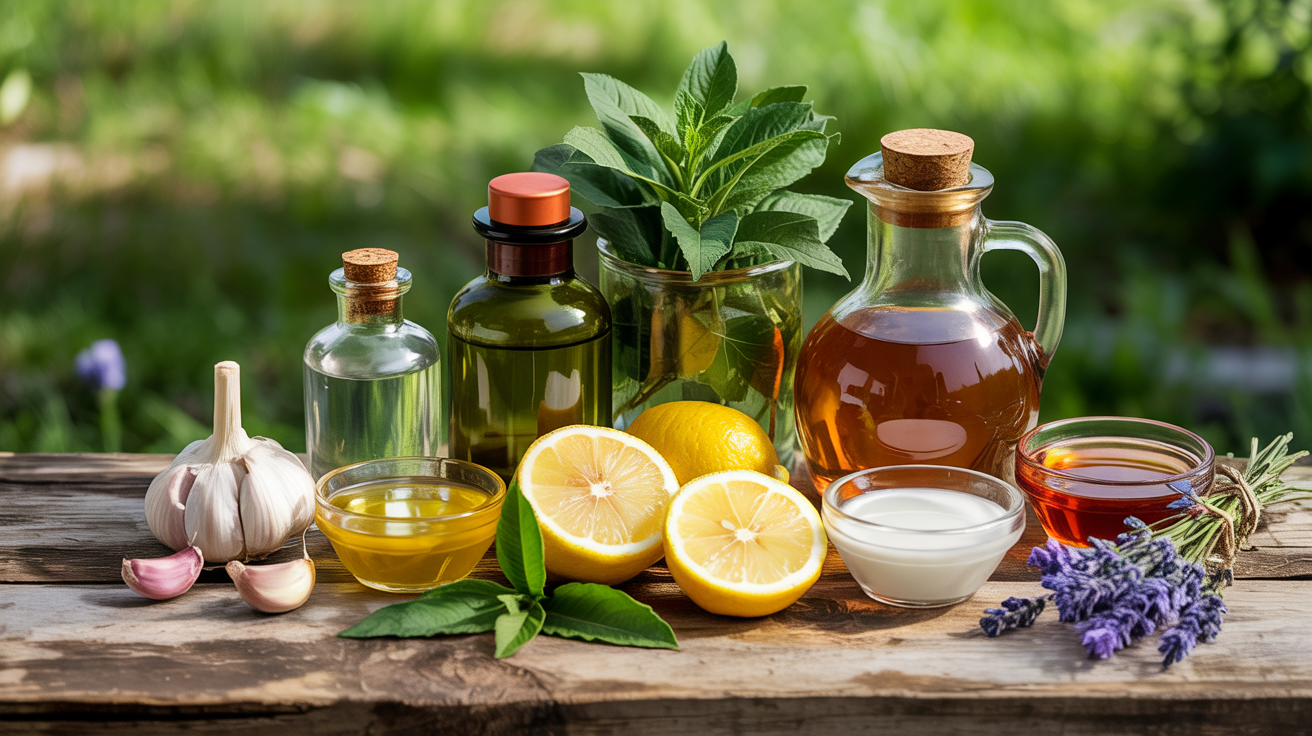
Some natural ingredients work better than others when it comes to keeping mosquitoes away. Many of these are easy to find in your kitchen or local store, and when mixed the right way, they create a powerful, safe spray for your yard.
| Ingredient | Why It Works | Notes |
|---|---|---|
| Citronella Oil | Masks, scents that mosquitoes are drawn to | A popular and strong-smelling essential oil |
| Garlic | Strong odor repels mosquitoes from the area | Best when boiled or steeped in water |
| Peppermint Oil | Cooling scent overwhelms mosquito senses | Also helps deter other bugs like ants |
| Vinegar | A sharp smell keeps mosquitoes from hanging around | Use white or apple cider vinegar |
| Lavender Oil | Smells pleasant to people but not to mosquitoes | Great for gardens with kids or pets |
| Witch Hazel | Helps mix oils and sprays evenly | Acts as a carrier for essential oils |
| Lemon or Citrus Peels | Natural oils confuse and repel mosquitoes | Can be boiled into a spray base |
Using these ingredients, you can mix a spray that’s both safe and effective. The right combination can protect your yard without chemicals, while still keeping mosquitoes away for hours.
How to Make Your Spray More Effective
Even the best homemade mosquito spray works better when you pair it with smart lawn care habits. Start by spraying during cooler times of the day, like early morning or late afternoon, when mosquitoes are most active.
Keep your grass trimmed and clear out thick bushes or tall weeds—these shady spots are mosquito hideouts. Remove any standing water, like in buckets, birdbaths, or plant trays, since mosquitoes lay their eggs there.
You can also plant mosquito-repelling herbs like basil, lavender, or citronella around your yard for extra protection. I’ve been doing this for months, and it works wonders. If you’re using essential oils in your spray, shake the bottle before each use to make sure the oils are mixed well.
With a little extra care and the right routine, your homemade spray can go even further in keeping mosquitoes away and making your outdoor space more comfortable.
Safety Tips for DIY Yard Sprays
Homemade mosquito sprays are generally safe, but it’s still important to use them carefully, especially around plants, pets, and kids. Here are a few simple safety tips to follow when using your DIY spray:
- Test Before Spraying Everything: Always test the spray on a small section of your yard or a few plants first. Some mixtures—especially those with strong vinegar or oils—can be harsh on sensitive leaves.
- Keep Pets and Kids Away During Application: While natural ingredients are safer than chemicals, it’s still a good idea to keep children and pets out of the area while you’re spraying. Let it dry for 15–30 minutes before letting them back outside.
- Store Sprays Safely: Keep your spray in a clearly labeled bottle and store it in a cool, dark place away from food or anything pets might chew.
A little caution goes a long way in keeping everyone safe while staying mosquito-free.
Conclusion
Making your own mosquito yard spray is a smart, safe, and budget-friendly way to enjoy your outdoor space without constant buzzing and bites.
With just a few natural ingredients—like garlic, vinegar, or essential oils—you can create a spray that works well without using harsh chemicals. It’s better for the environment, safer for pets and kids, and easy to make at home.
Whether you try a garlic-based spray, a vinegar and oil mix, or a citrus blend, homemade sprays are a great step toward a more comfortable yard. Just remember to spray regularly, remove standing water, and trim overgrown areas to make your efforts even more effective.
With the right recipe and a little care, you can enjoy a mosquito-free backyard all season long—and feel good knowing it’s all-natural and homemade!



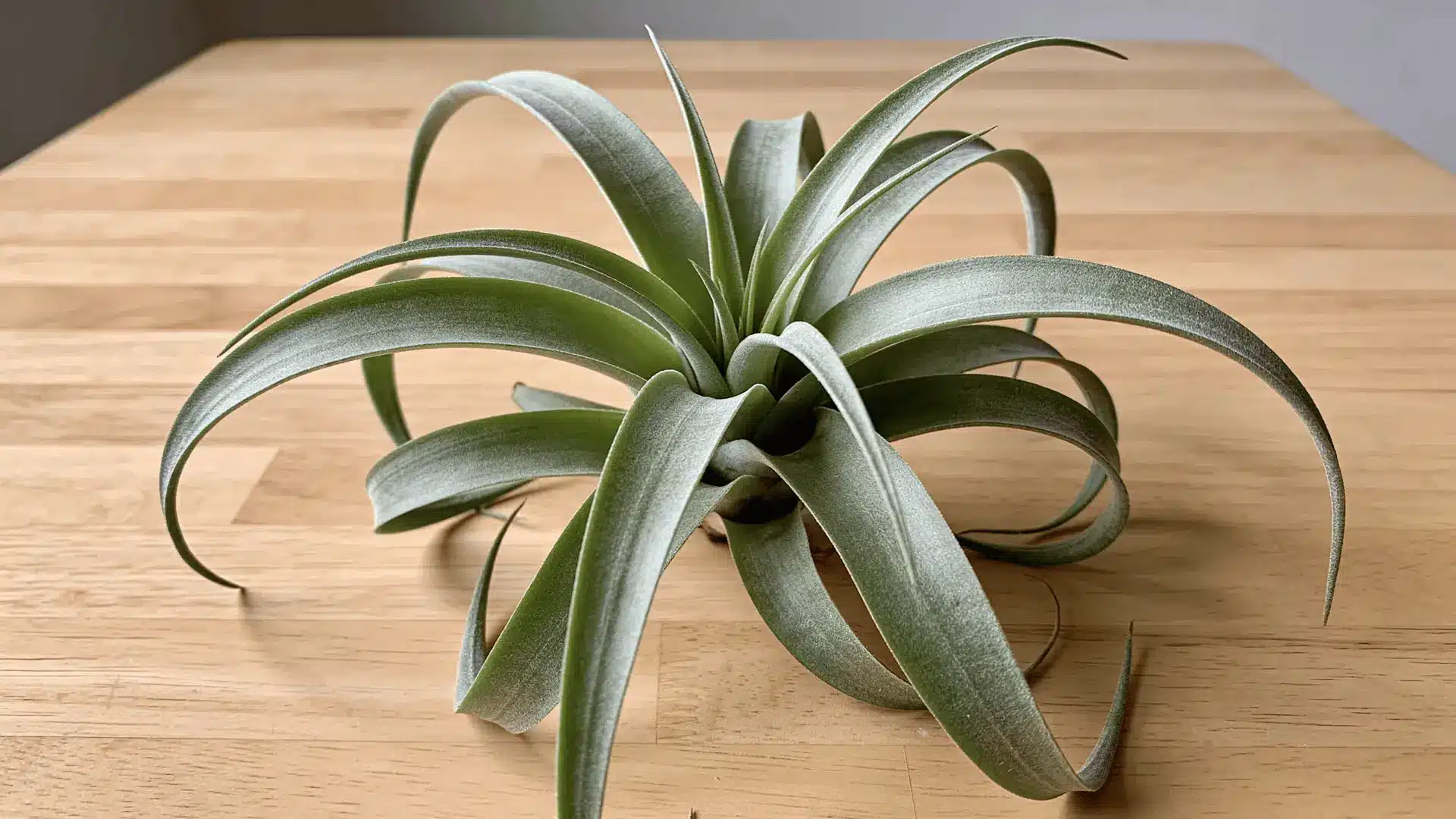

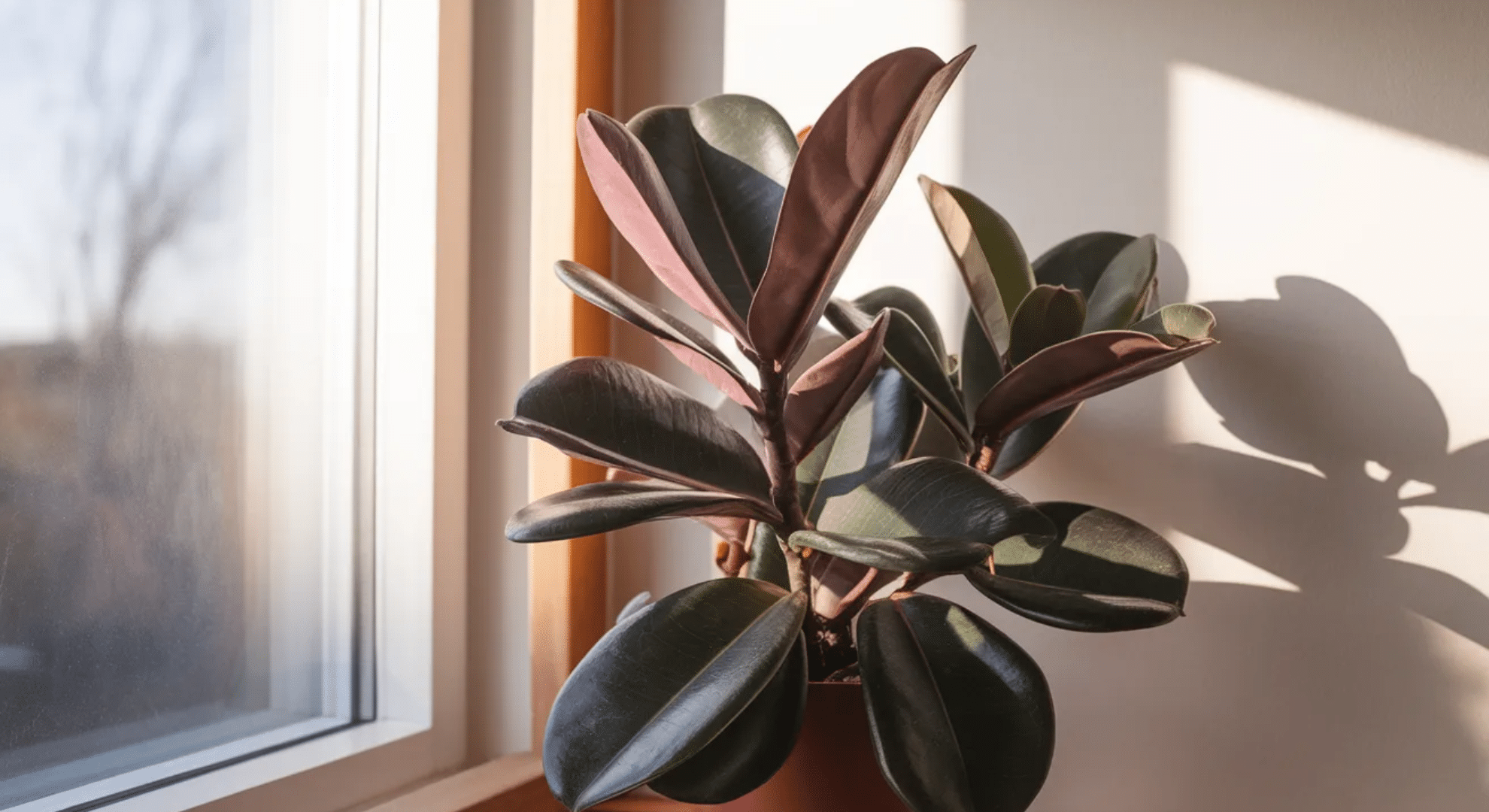
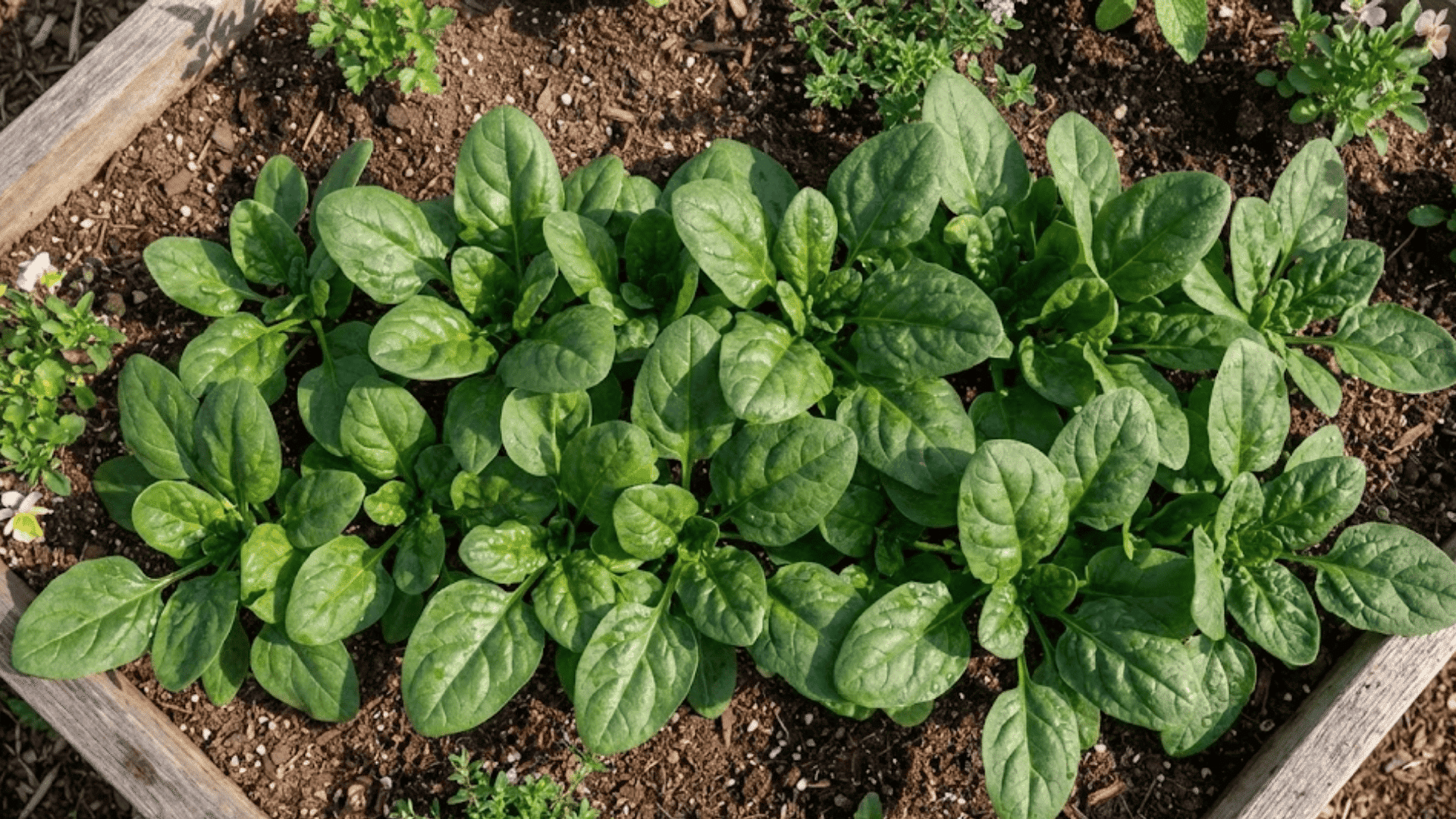
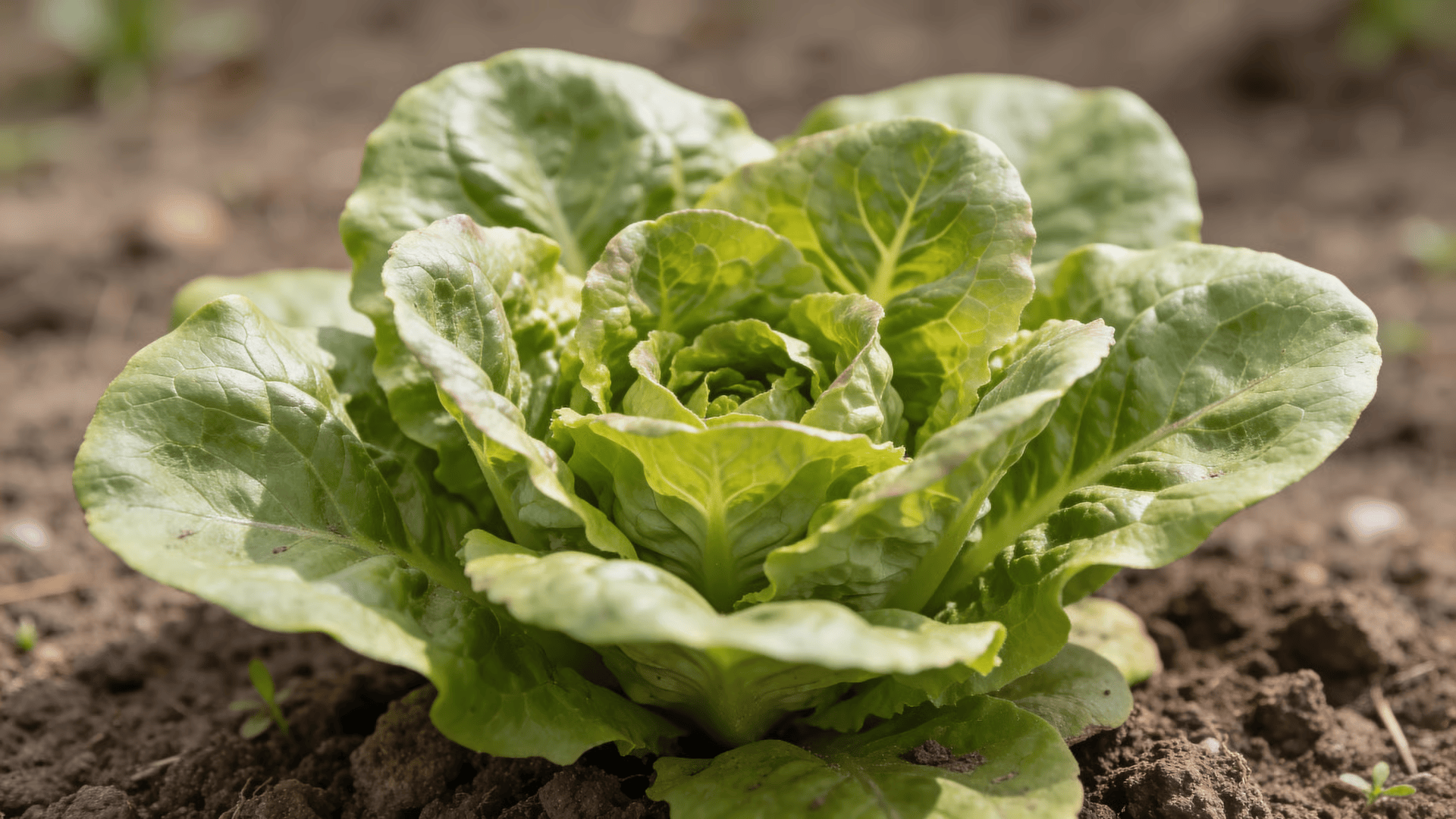
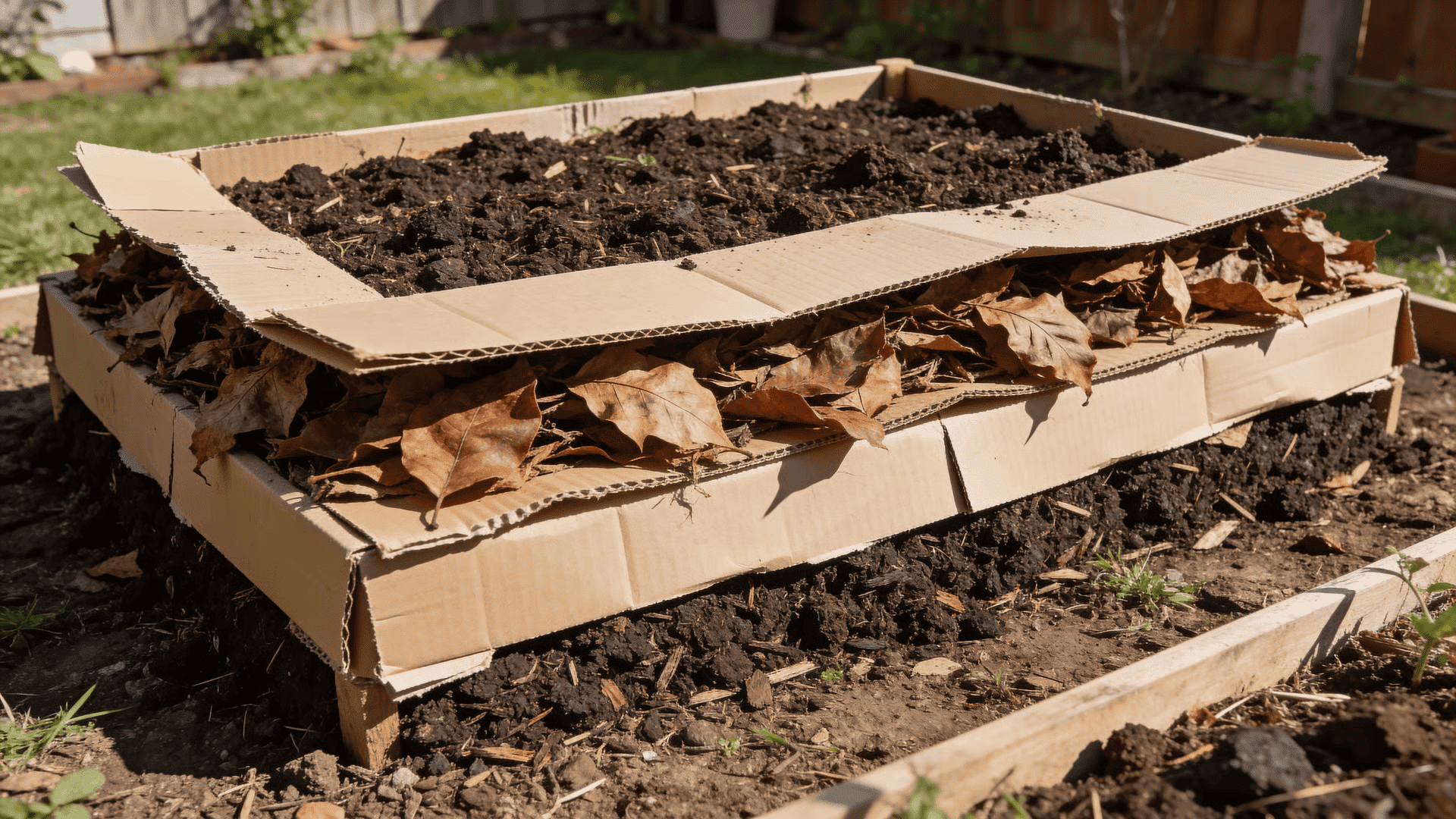
One Response
Thank You very much on your advice on DIY personal mosquitoes spray and yard spray, where I live the mosquitoes are like aircraft carriers. I use the spray called deet I also have a small dog and worry about him getting ate up, my spray doesn’t seem to work on them I’m trying to build a shed and they make it very difficult to work, could you give me the name of your book the one that has the most recipes for keeping them at bay so I may purchase it on Amazon that would be great better yet give me the name of all your books so I can choose more of them Thank You